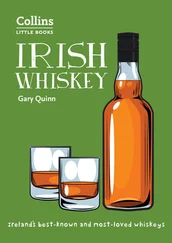The next morning was worse. Mark shared the courtesy van with one of his co-panelists, a handsome weatherman whose first book had been holding in the middle of the lists for a month now. The weatherman pressed a copy on Mark immediately. Sunmakers: How Effective Leaders Use Bright Ideas to Get Through Dark Times . It had generous margins. The shuttle van rolled through exurb after exurb.
“I really loved Bringing the Inside Out, ” said the weatherman. “You working on anything?”
Mark nodded and breathed out in a way that was supposed to convey he was so hard at work lately that he barely had time to answer the question.
When they came to the right exurb and arrived at the system of parking lots that served the mall that housed the bookstore, Mark and the weatherman were met by a teenager and brought to a dingy break room. There were bisected croissants and small pucks of cream cheese on a plastic tray by the door; the water bottles were off-brand and room temp. There were two other co-panelists already waiting: a Quit Your Job and Start Your Own Business guy and a Make Your Fortune Through Distressed Properties guy. Only the weatherman seemed not to realize that this was a dog of a gig. A techie with a greasy ponytail fitted Mark and the others with lavalier mikes. Twenty minutes ticked by before the teenager came back and led them into the MegaBooks! proper — as big as a hangar — to a dais beside Blender’s, the in-house café.
There were easily two hundred people in folding chairs before the dais, plus maybe another fifty standing, plus some spillover from the Blender’s crowd.
Who the hell, thought Mark, chooses to drive out to the local book barn on a beautiful Saturday to hear people like himself and the weatherman opine on self-betterment?
But when Mark saw who came in next, the crowd was a little more explicable. That was Diane What’s-Her-Face, the single mother who had calmly lifted a small car off her son’s leg (sincerely unaware, it seems, of the steady-handed neighbor lady with the flip camera getting the whole thing). After that thirty seconds of footage had been viewed ten zillion times, Diane Carlifter wrote what Mark had to admit was a very good little book about the experience.
I Didn’t Do It Alone: Why a Connected World Is a Better World was one hundred and fifty pages and clear as a bell: “I discovered that I have so much more strength in me than I believed I had. And even as I felt Jimmy slip out from beneath the bumper of the car, I knew that I must never forget that it is my belief in my limitations that hobbles me more than my limitations ever will.” Also, it didn’t hurt that she was hot.
The moderator was the MegaBooks! founder and CEO. His own memoir— How to Build Something from Nothing —he had written five years ago without professional assistance and had published himself. It was such a deeply and essentially bad book and so roundly mocked by everyone who read it ( Holy Shit, Look at All This Money I Have! was an alternative title suggested by one reviewer) that the CEO had attempted to buy back and pulp every extant copy, and had nearly succeeded. That, in turn, had made the book a very rare volume and given it a weird cachet among a tiny cult of book collectors.
They were on that dais for an hour, and for Mark it was a very long hour. The crowd really just wanted to hear from Diane Carlifter, and Mr. MegaBooks! did a crappy job of moderating. The Distressed Properties guy, having sat there unconsulted for forty-five minutes, actually got up to use the bathroom.
Mark mainly just sat there, an engaged and I-see look playing on his face. When the attention finally fell on him, he used one of his go-tos. A musing, Buddhist-ish parable he called Mistakes You Should Try to Avoid Making.
It was his ability to appear to be searching his soul that made Mark remarkable; that was probably what Blinc saw in him, way back when. It was easy for him. But now he felt like the guy who’d written one good jingle or whatever.
“Assuming that you’re smarter than the other guy,” he told the crowd, “that’s the mistake you should avoid making.” He said he used to make that mistake all the time, until he’d met a homeless man named Cecil.
“This was years ago. Every day, on my way to work, there was Cecil, sometimes asking for change, sometimes too plagued by his own demons even for that. I started spending so much energy trying not to give him any of my attention, because of the guilt he caused in me just by being there, you know? He was not easy to look at — he’d lost one foot to diabetes and the other was looking dodgy. He had this wet-wool-and-rough-sleeping-human funk around him like weather. After months of seeing him every day and trying not to, I just…well, I don’t know what I just, exactly, but it was bitterly cold that day, I remember, and I bought Cecil a cup of coffee. Pretty soon we were sharing a cup of coffee every morning. I’d pay a buck for the coffee and a quarter for the extra paper cup. And we’d take our coffee together there, outside the subway station.” Mark looked just as you would look if you were casting your mind back to the memory of a lost friend. “Cecil taught me so much,” he said meaningfully. “He taught me about eye contact. How to use it to protect yourself and to assert yourself. He had to do both, Cecil. He lived by his wits on the streets.” Pause. “Though in the end he also died by his wits, I guess.”
At the book-signing after the event, Mark regained some ground. He was an expert at the signing. Though the protect/assert stuff was bullshit, eye contact was important somehow, and Mark was naturally good at it. He might give a brotherly nod or a kind elbow touch in the handshake. Three times in the last year, a woman presenting his book to him had been broadcasting on a certain frequency, and he’d signed her book and then, with eye contact established, Sharpied his cell number onto the reverse of the dust-jacket flap. That method was two for three.
Which is why he got a special thrill when he saw that Diane Carlifter had written her cell phone number in his copy of her book. This depressing junket might have a consolation prize.
He met her that evening in a passable and nearly empty Italian place in the lobby of her hotel, which was nicer than his. He thought he was showing up for a date or an assignation, if that word meant what he thought it did. But a few minutes in, it started to feel like something else.
When they sat down, Diane Carlifter just drained a vodka tonic, which back-footed Mark a bit. He was going to try to keep to two drinks tonight. If the assignation thing happened, he wanted to be able to perform. He’d not actually gone there — like, with a real person — in months, and he had some concerns.
“You’re going to have to stop using the Cecil story,” she said after they had ordered.
“Is this professional advice? Because I’m open to that. I’ve been having a hard time coming up with new stuff lately. I loved I Didn’t Do It Alone, by the way.”
Oh, you little idiot, she pretty much said with her eyes. “I suppose it is advice, yes. Coffee hasn’t cost a dollar since 1989, and people named Cecil do not end up homeless. You should’ve called him Joe or something.” Damn. Mark had actually considered Joe. “But you don’t have to come up with new stuff, Deveraux. They provide the content; we’re just the platform. They certainly don’t want any more of that homeless-sage thing. Unless you can throw Synapsiquell in there somehow.”
“They?” asked Mark, signaling the waiter for another drink.
“Well, in our case, they is Straw, I guess, or the Conch Group. That’s who you’ll be under, I assume.”
Читать дальше












